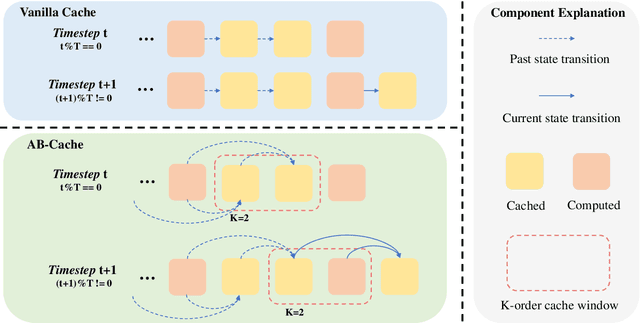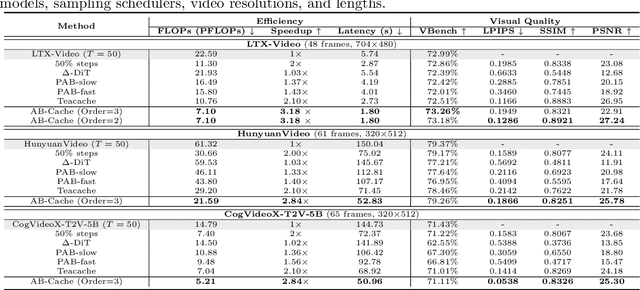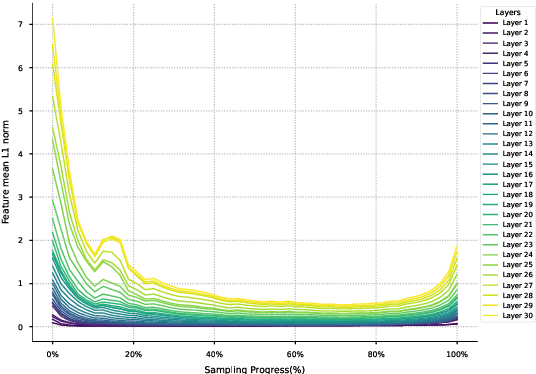Zichao Yu
ProFlow: Zero-Shot Physics-Consistent Sampling via Proximal Flow Guidance
Jan 28, 2026Abstract:Inferring physical fields from sparse observations while strictly satisfying partial differential equations (PDEs) is a fundamental challenge in computational physics. Recently, deep generative models offer powerful data-driven priors for such inverse problems, yet existing methods struggle to enforce hard physical constraints without costly retraining or disrupting the learned generative prior. Consequently, there is a critical need for a sampling mechanism that can reconcile strict physical consistency and observational fidelity with the statistical structure of the pre-trained prior. To this end, we present ProFlow, a proximal guidance framework for zero-shot physics-consistent sampling, defined as inferring solutions from sparse observations using a fixed generative prior without task-specific retraining. The algorithm employs a rigorous two-step scheme that alternates between: (\romannumeral1) a terminal optimization step, which projects the flow prediction onto the intersection of the physically and observationally consistent sets via proximal minimization; and (\romannumeral2) an interpolation step, which maps the refined state back to the generative trajectory to maintain consistency with the learned flow probability path. This procedure admits a Bayesian interpretation as a sequence of local maximum a posteriori (MAP) updates. Comprehensive benchmarks on Poisson, Helmholtz, Darcy, and viscous Burgers' equations demonstrate that ProFlow achieves superior physical and observational consistency, as well as more accurate distributional statistics, compared to state-of-the-art diffusion- and flow-based baselines.
Fast-ARDiff: An Entropy-informed Acceleration Framework for Continuous Space Autoregressive Generation
Dec 09, 2025



Abstract:Autoregressive(AR)-diffusion hybrid paradigms combine AR's structured modeling with diffusion's photorealistic synthesis, yet suffer from high latency due to sequential AR generation and iterative denoising. In this work, we tackle this bottleneck and propose a unified AR-diffusion framework Fast-ARDiff that jointly optimizes both components, accelerating AR speculative decoding while simultaneously facilitating faster diffusion decoding. Specifically: (1) The entropy-informed speculative strategy encourages draft model to produce higher-entropy representations aligned with target model's entropy characteristics, mitigating entropy mismatch and high rejection rates caused by draft overconfidence. (2) For diffusion decoding, rather than treating it as an independent module, we integrate it into the same end-to-end framework using a dynamic scheduler that prioritizes AR optimization to guide the diffusion part in further steps. The diffusion part is optimized through a joint distillation framework combining trajectory and distribution matching, ensuring stable training and high-quality synthesis with extremely few steps. During inference, shallow feature entropy from AR module is used to pre-filter low-entropy drafts, avoiding redundant computation and improving latency. Fast-ARDiff achieves state-of-the-art acceleration across diverse models: on ImageNet 256$\times$256, TransDiff attains 4.3$\times$ lossless speedup, and NextStep-1 achieves 3$\times$ acceleration on text-conditioned generation. Code will be available at https://github.com/aSleepyTree/Fast-ARDiff.
AB-Cache: Training-Free Acceleration of Diffusion Models via Adams-Bashforth Cached Feature Reuse
Apr 13, 2025



Abstract:Diffusion models have demonstrated remarkable success in generative tasks, yet their iterative denoising process results in slow inference, limiting their practicality. While existing acceleration methods exploit the well-known U-shaped similarity pattern between adjacent steps through caching mechanisms, they lack theoretical foundation and rely on simplistic computation reuse, often leading to performance degradation. In this work, we provide a theoretical understanding by analyzing the denoising process through the second-order Adams-Bashforth method, revealing a linear relationship between the outputs of consecutive steps. This analysis explains why the outputs of adjacent steps exhibit a U-shaped pattern. Furthermore, extending Adams-Bashforth method to higher order, we propose a novel caching-based acceleration approach for diffusion models, instead of directly reusing cached results, with a truncation error bound of only \(O(h^k)\) where $h$ is the step size. Extensive validation across diverse image and video diffusion models (including HunyuanVideo and FLUX.1-dev) with various schedulers demonstrates our method's effectiveness in achieving nearly $3\times$ speedup while maintaining original performance levels, offering a practical real-time solution without compromising generation quality.
Infinite Mobility: Scalable High-Fidelity Synthesis of Articulated Objects via Procedural Generation
Mar 17, 2025Abstract:Large-scale articulated objects with high quality are desperately needed for multiple tasks related to embodied AI. Most existing methods for creating articulated objects are either data-driven or simulation based, which are limited by the scale and quality of the training data or the fidelity and heavy labour of the simulation. In this paper, we propose Infinite Mobility, a novel method for synthesizing high-fidelity articulated objects through procedural generation. User study and quantitative evaluation demonstrate that our method can produce results that excel current state-of-the-art methods and are comparable to human-annotated datasets in both physics property and mesh quality. Furthermore, we show that our synthetic data can be used as training data for generative models, enabling next-step scaling up. Code is available at https://github.com/Intern-Nexus/Infinite-Mobility
 Add to Chrome
Add to Chrome Add to Firefox
Add to Firefox Add to Edge
Add to Edge